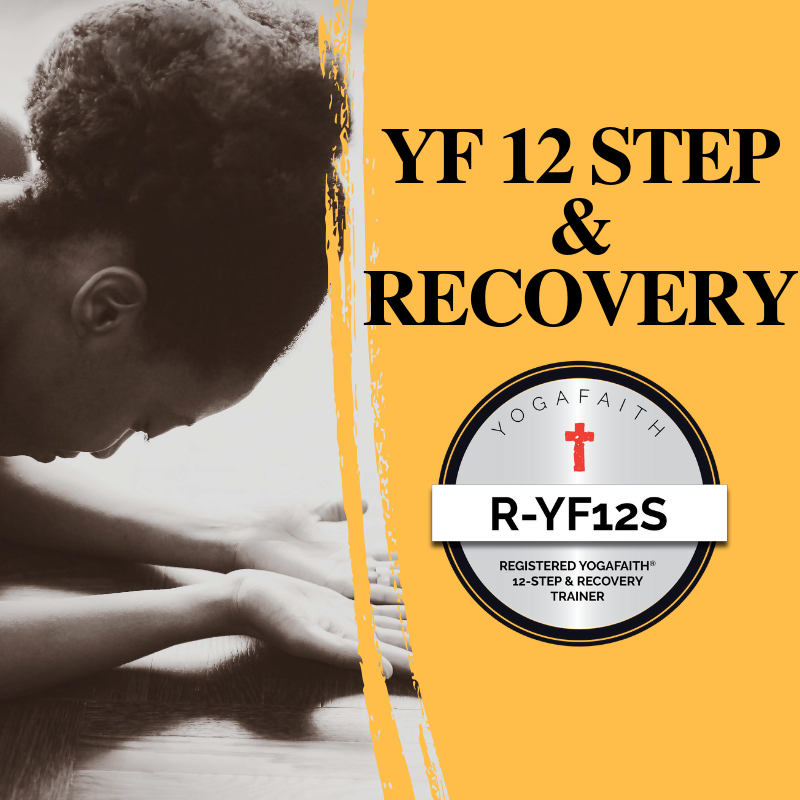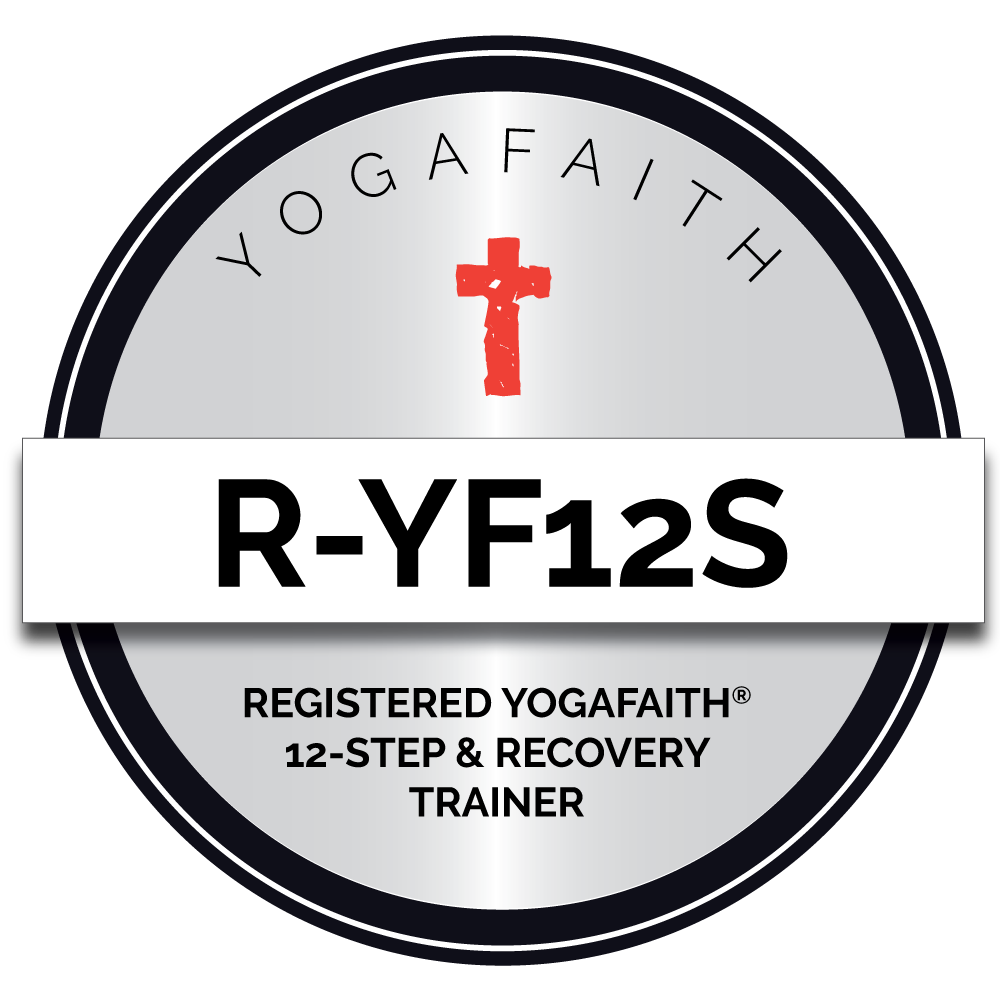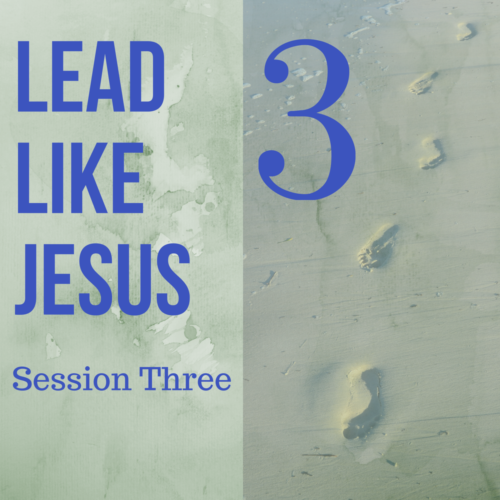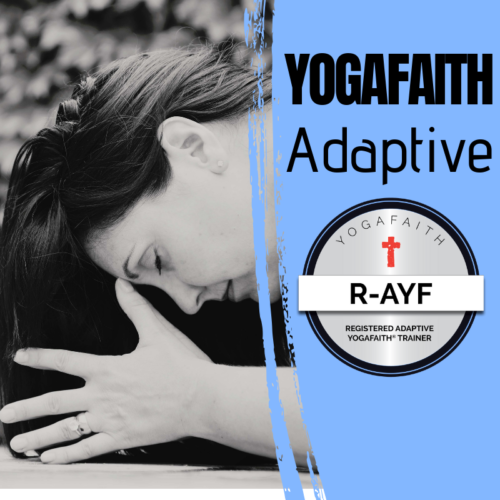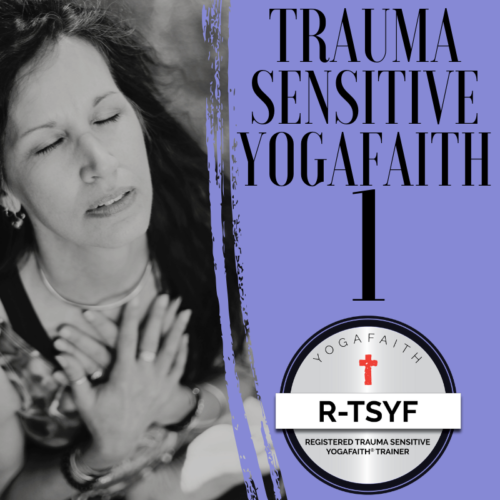Description
- See training details HERE
- The online and OnDemand module can be started anytime, achieved at your own pace.
YogaFaith 12 Step and Recovery Teacher Training
When Jesus saw him lying there, and knew that he had been sick for a long time, he asked him, “Do you want to be made well?” John 5:6
This is our question to you today, do you [really] want to be made whole?
Everyone who has a heartbeat battles addiction in some way, shape or form. YogaFaith strives to bring healing and wholeness to every dimension of your being. Our 12 Step Program is no different. We want to tackle the barriers, addictions, traumas, and behaviors that hold you, or someone you know, back, from the abundant life that God has purposed for you while you are on planet Earth!
In 1934, Bill Wilson founded the 12 Step program based on biblical principles. YogaFaith is redeeming and injecting these Christian principles back into the age old 12 step program that has worked in healing thousands of people, worldwide, of all ages and from numerous addictions. We hope you can join us in this vital training that heals from the inside out and shall spark revival around the globe!
- The brain – neuroscience and understanding addictive processes
- The 12 Step Path based on the original 12 Steps of AA and bringing God front and center.
- Yoga for All A’s: Chemical Addictions, Obsession, and eating disorders
- Trauma and addiction
- Trauma and healing
- Toxic Relationships, finding healing and restoration
- How to hold space for those in recovery
- How to lead a YogaFaith Class + 12 step meeting
- Receive your R-YF12S Certification and Continued Education
- Webinars, manual and pertinent handouts are included in your material.
More Details HERE
In the beginning….redeeming the 12 Steps for God’s glory
Bill Wilson, founder of AA, reported that “early AA got its ideas of self-examination, acknowledgment of character defects, restitution for harm done, and working with others straight from the Oxford Groups,” (Alcoholics Anonymous Comes of Age, p. 39) and God.
In the Steps as they were published in 1935, half of the Steps contain a reference to God. The first is a reference to “a Power greater than ourselves” (Step 2), two refer to “God, as we understood Him” (Steps 3 and 11), another two simply say “God” (Steps 5 and 6) and one refers to God as “Him” (Step 7).
Moreover, this is a specific, theistic, conception of God. Theism conceives of God as personal and active in the governance of the world. In the Steps, one can have “conscious contact with God” (Step 11) and God can do things such as remove our defects of character and our shortcomings (Steps 6 and 7). This interventionist God (the Big Book says that “God could and would if He were sought”), is a Christian conception of God.
Many of the Steps also recommend behaviors that have historically been part of religious practice. These include self-surrender (Step 3: “Made a decision to turn our will and our lives over to the care of God”); confession of sins (Step 5: “Admitted to God, to ourselves, and to another human being”); atonement or restitution (Steps 8 and 9: “Made a list… (and) made direct amends… wherever possible”); and spreading the gospel (Step 12: “we tried to carry this message”).
“The substantive faith set forth in especially the first three Steps of Alcoholics Anonymous,” Ernest Kurtz wrote in his classic and authoritative work on the history of AA, “was in salvation attained through a conversion, the pre-condition of which was the act of surrender.” (Not God: A History of Alcoholics Anonymous, p. 182)
The Context of the History of Religious Ideas by Ernest Kurtz is a must-read for those interested in the religiosity of AA. He describes the “Evangelical Pietism” of the Oxforders. The “evangelical” part involves a fervour for carrying the message of the gift of an omnipotent God.
Read YogaFaith 12 Step and Recovery Trainer Barbara Campbell’s Life of Addiction, A Journey to Submission Blog.

